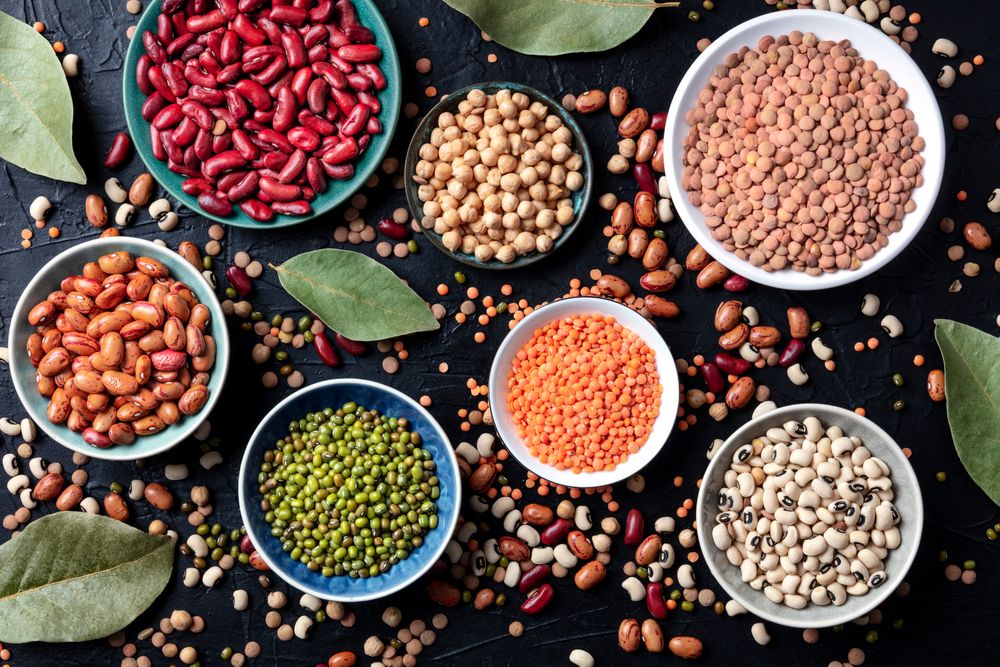If beans aren't a regular part of your diet, it might be time to change. Beans, technically classified as part of the vegetable family, are the seeds of various plants and unquestionably rank among the healthiest foods you can include in your meals.
Evidence from the world's Blue Zones strongly supports this claim. These regions, known for their high concentrations of centenarians—individuals living for 100 years or more with remarkably low rates of chronic disease—emphasize the consumption of beans as a cornerstone of their diets. For instance, Nicoya, Costa Rica's inhabitants incorporate black beans into their daily meals, while those in Okinawa, Japan, favor soybeans, and the people of Icaria, Greece, regularly enjoy white beans and chickpeas.
Recent research indicates that incorporating beans into a predominantly plant-based diet can lead to improved heart health, weight management, reduced chronic inflammation, and enhanced disease resistance. But what makes beans so exceptionally healthy?
Their remarkable health benefits stem from their rich composition of fiber, protein, essential vitamins, and antioxidants. While beans, as a category, boast extraordinary nutritional value, there's a vast array of varieties, each with its distinct nutrient profile and health advantages.
To streamline your choices, we've compiled a list of the top 7 healthiest beans based on nutritional content and recent scientific findings, presented in no specific order. Keep reading to discover these nutritional powerhouses.
Continue reading to learn more.
1) Black Beans
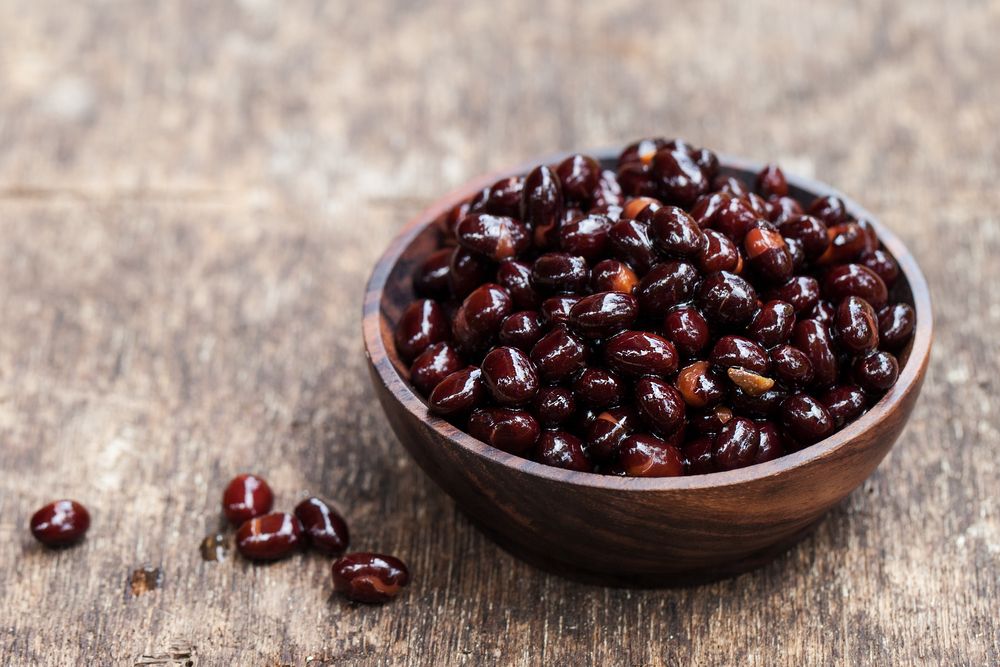
Black beans rank among the healthiest options available, but what exactly contributes to their nutritional prowess? Like many other beans, they offer a substantial boost of fiber and protein per serving, along with essential B vitamins, iron, and magnesium.
Research published in Nutrients suggests that incorporating black beans into a typical Western diet can positively impact insulin responses and cardiovascular disease risk among adults with Metabolic syndrome, largely attributable to their high fiber and antioxidant content.
Furthermore, studies highlighted in Nutrients indicate that darker-colored beans, such as black beans, tend to contain higher levels of antioxidants and polyphenol plant compounds compared to lighter-colored varieties.
An intriguing discovery reveals that consuming black beans and chickpeas alongside white rice can enhance glycemic responses, potentially mitigating blood sugar spikes—an additional advantage for aficionados of black beans!
2) Chickpeas/Garbanzo Beans
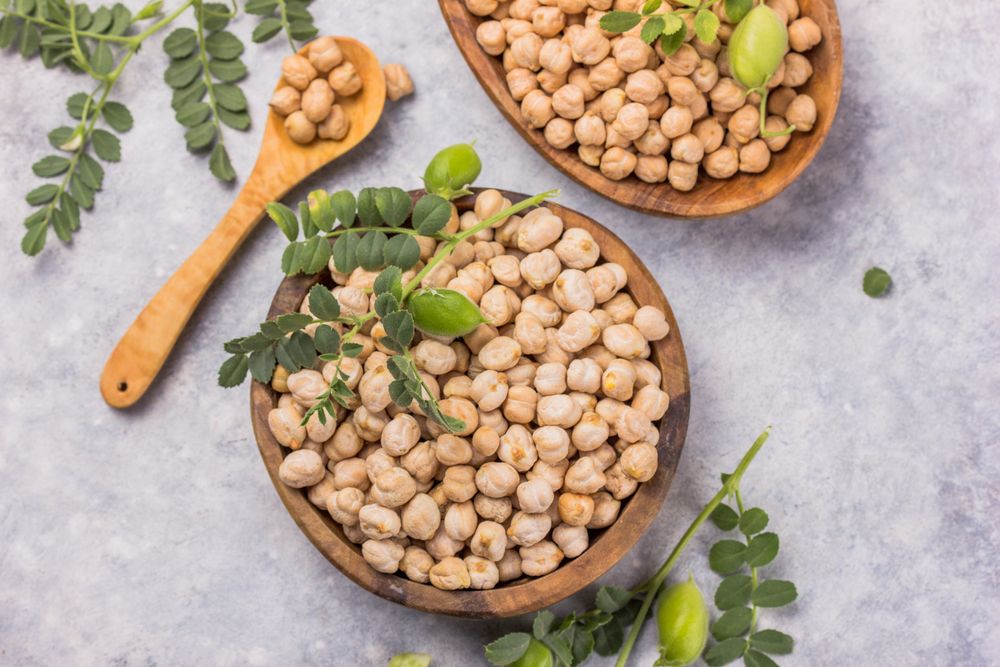
Whether you refer to them as chickpeas or garbanzo beans, these legumes offer a plethora of health benefits for your enjoyment.
Primarily, chickpeas boast high levels of both protein (7 grams per 1/2 cup) and fiber (6 grams per 1/2 cup), rendering them an exceptionally satiating snack option beneficial for gut health and weight loss or management.
A study published in the journal Nutrients highlights that the advantages of consuming chickpeas extend beyond their fiber and protein content. It indicates that individuals who include chickpeas in their diet tend to have elevated intakes of essential vitamins such as E, A, and C, along with folate, magnesium, iron, and healthy fats. Moreover, evidence suggests that incorporating chickpeas or hummus (a chickpea-based dip) into your diet may aid in weight management, blood sugar regulation, and reduction of risk factors associated with heart disease.
3) Cannellini Beans
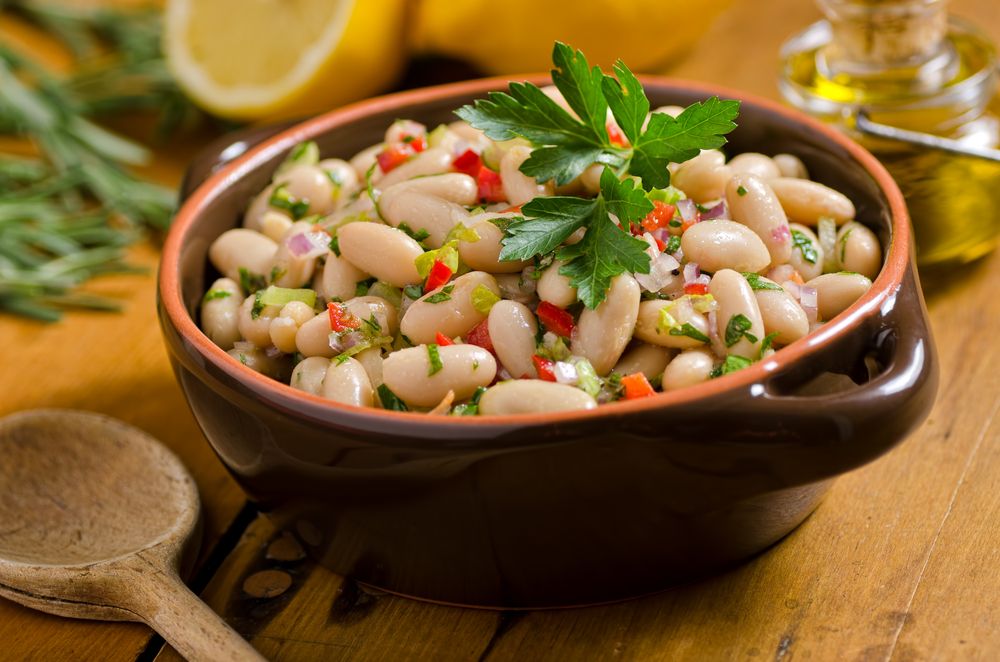
White beans, also known as Cannellini or White Kidney Beans, offer a diverse range of health benefits worth noting.
These legumes rank among the higher-protein options on our list, making them a satisfying choice for those seeking plant-based protein sources. Additionally, white beans boast a rich potassium content, providing between 35-46% of your daily value. Potassium plays a crucial role in blood pressure regulation, kidney stone prevention, and bone health enhancement.
In addition to potassium, white beans deliver a significant magnesium boost, offering approximately 12-16% of your recommended daily intake. Maintaining adequate levels of magnesium proves highly advantageous in warding off cardiovascular disease, type 2 diabetes, asthma, and osteoporosis.
4) Lupin Beans
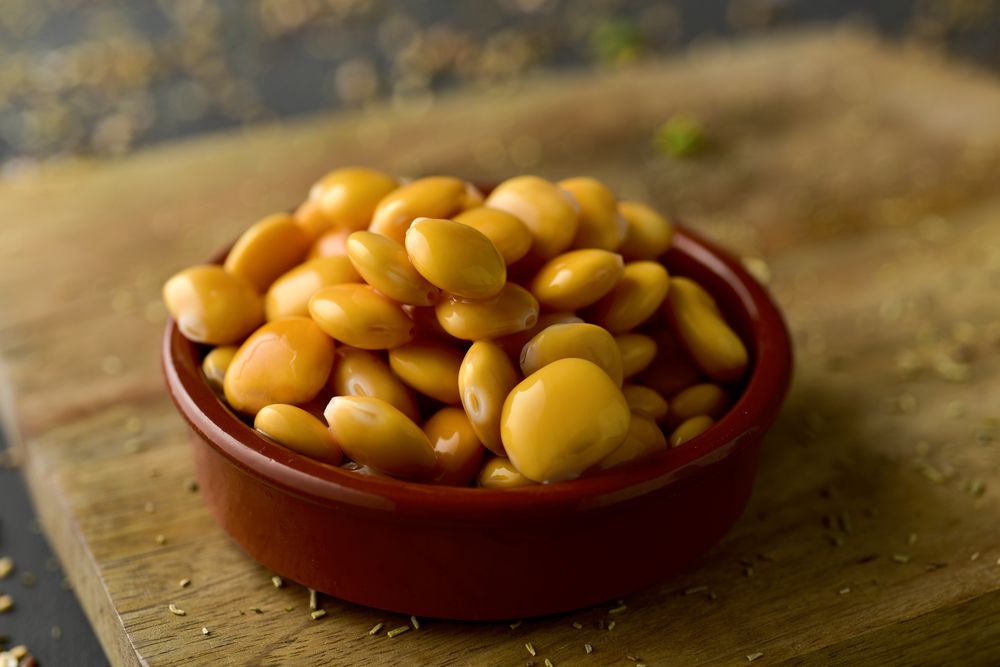
While lupin beans, also known as "lupini" beans, may not enjoy the same spotlight as popular legumes like black beans or chickpeas, they pack a punch when it comes to nutritional benefits.
Though not as fiber-rich as some counterparts, with approximately 2 grams per serving, lupin beans excel in protein content, boasting around 13 grams per every 1/2 cup—making them the top choice for protein on our list.
A recent study published in the journal Molecules delves into three key components that contribute to the healthfulness of lupin beans: their high protein content, healthy unsaturated fats, and abundant antioxidant plant compounds. Notably, lupin beans are particularly rich in carotenoids, aiding the body in combating free radicals and preventing oxidative stress damage, thereby reducing the risk of diseases such as cancer and heart disease.
Another study, featured in the journal Nutrients, revealed the positive effects of lupin consumption—whether in whole form or as lupin fiber and protein—on blood pressure levels, satiety, and weight loss. While whole lupins yielded superior results, all three categories demonstrated beneficial outcomes.
5) Pinto Beans
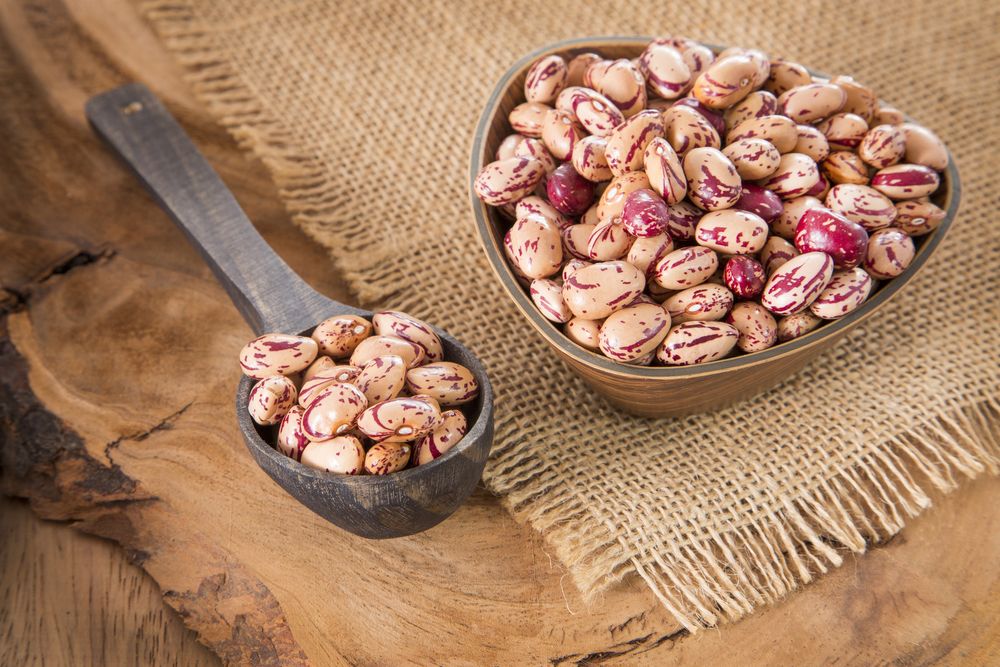
While pinto beans are commonly associated with Mexican and Tex-Mex cuisine or as a staple in Southern dishes alongside ham hock, these brown beans are packed with fiber, protein, and a plethora of nutrients.
In addition to their inherent fiber and protein content, pinto beans offer significant amounts of essential nutrients such as iron and selenium.
A serving of pinto beans provides approximately 11-25% of your daily recommended intake of iron, varying slightly between genders (11% for women, 25% for men). This nutrient plays a crucial role in preventing iron deficiency, which can manifest as headaches, fatigue, heart issues, and potential complications during pregnancy.
Furthermore, a serving of pinto beans contains about 5 micrograms of selenium, equating to approximately 11% of your daily recommended intake. Research suggests that consistent selenium consumption can help mitigate the risk of cardiovascular disease, thyroid disorders, cognitive decline, and certain types of cancer.
6) Soybeans
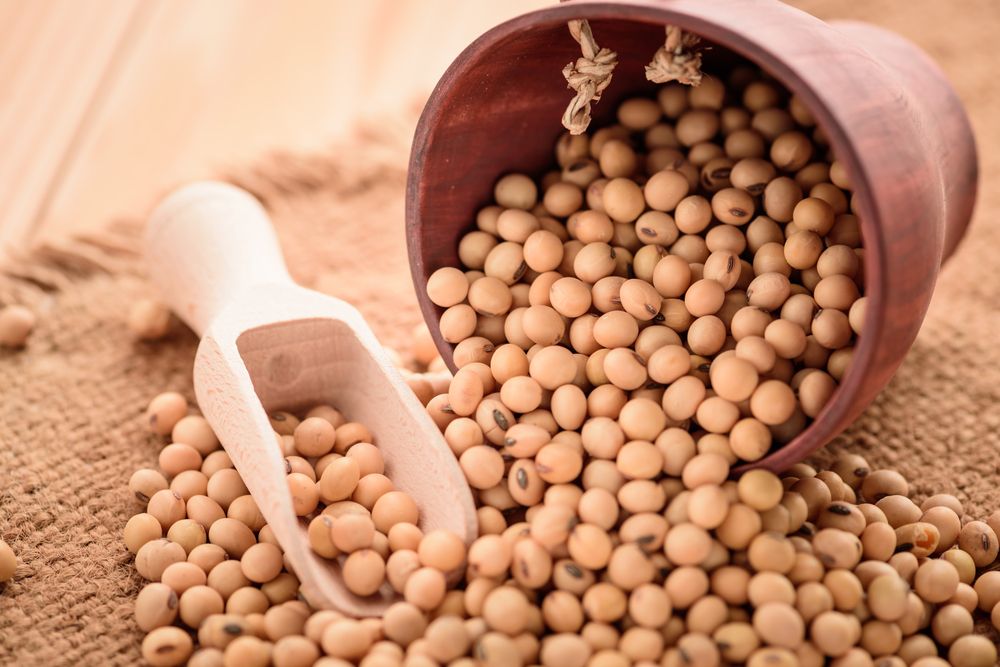
You've likely encountered soybeans in various forms without even realizing it. Take edamame, for instance, which are essentially young green soybeans. Additionally, common foods such as tofu, tempeh, miso, soy sauce, and soy milk all originate from soybeans.
Soybeans are not only versatile but also pack a nutritional punch. They are rich in protein, fiber, and healthy fats, along with essential nutrients like calcium, potassium, iron, and selenium.
What sets soybeans apart from many other legumes is that they are a complete protein source. This means they contain all nine essential amino acids that the body cannot produce on its own, necessitating their intake through food. While most complete proteins are animal-based, soybeans stand out as a notable plant-based exception alongside sources like quinoa. This quality makes soybeans and soy-based products particularly beneficial for individuals adhering to vegan or vegetarian diets, as ensuring adequate protein intake can sometimes be challenging.
Research supports the health benefits of incorporating soy into one's diet. Studies, such as those published in Nutrients and Frontiers in Nutrition, have linked soy consumption to a reduced risk of chronic diseases such as coronary heart disease, breast cancer, and prostate cancer. This suggests that integrating soy into one's dietary routine may contribute to overall cardiovascular health and disease prevention.
7) Navy Beans
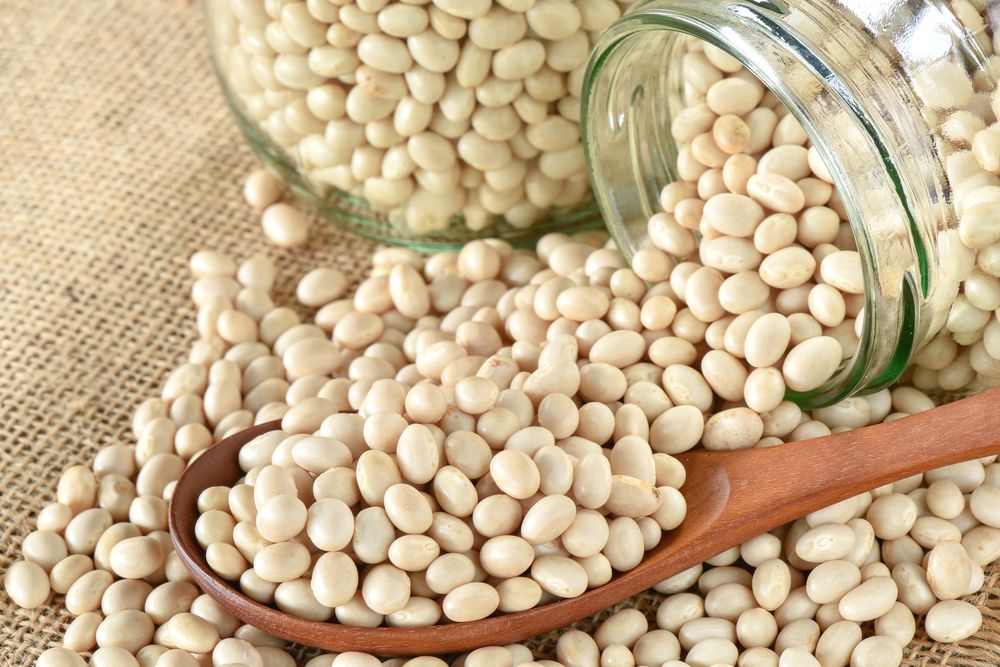
Consider incorporating navy beans into your diet, particularly if you're looking to boost your intake of fiber, protein, and B vitamins.
These beans are a variety of white beans and offer numerous health benefits, largely due to their rich B vitamin content, notably B1 (thiamine) and B9 (folate). A serving of navy beans provides approximately 0.2 micrograms of thiamine, equating to around 16% of your daily recommended intake. Thiamine is essential for cellular growth and function, as well as energy metabolism. Additionally, a serving of navy beans supplies about 32% of your daily folate requirement, a vital vitamin linked to cognitive function, cognitive decline prevention, and cardiovascular health.

